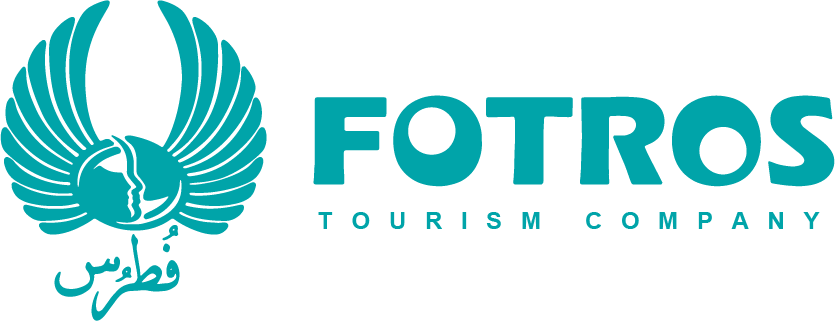
Medical Surgeries
The Mini Gastric Bypass (MGB)


The Mini Gastric Bypass (MGB) is a surgical weight loss procedure that is similar to the traditional Roux-en-Y Gastric Bypass (RYGB) but involves fewer steps and is less invasive. It is also known as the One Anastomosis Gastric Bypass (OAGB). Here's an overview of the procedure, its benefits, and some considerations:
Procedure :
Creation of a Small Gastric Pouch : The surgeon creates a small pouch at the top of the stomach, typically by dividing it. This pouch is much smaller than the main stomach.
Re-routing the Small Intestine : The small intestine is then rerouted and connected to the small gastric pouch. This allows food to bypass a portion of the small intestine, thus reducing calorie absorption.
Anastomosis : The re-routing of the intestine involves the creation of an anastomosis, which is a connection between the small gastric pouch and the small intestine.
Shorter Procedure: One of the key distinctions of MGB is that it involves only one anastomosis, whereas traditional RYGB involves two.
Shorter Hospital Stay : Patients usually spend a shorter time in the hospital compared to RYGB.
Potential for Reversal : MGB is considered potentially reversible, although it's a major surgery and should not be undertaken with the expectation of reversal.
It appears you're asking about gastric care before and after undergoing a gastric bypass surgery (also known as bariatric surgery). Gastric bypass surgery is a weight loss procedure that involves reducing the size of the stomach and rerouting the small intestine to help people lose weight. Here's a general overview of what gastric care involves before and after the surgery:




Before Gastric Bypass Surgery:
Medical Evaluation: Patients typically undergo a thorough medical evaluation before the surgery. This may include blood tests, imaging studies, and consultations with various healthcare professionals to assess their overall health and suitability for the procedure.
Dietary Counseling: In the weeks leading up to surgery, patients often follow a specific pre-operative diet plan. This is designed to reduce the size of the liver and make the surgery safer and more effective.
Psychological Evaluation: Many healthcare providers require a psychological evaluation to ensure that patients have realistic expectations and are mentally prepared for the changes that come with this surgery.
Exercise and Lifestyle Changes: Patients may be encouraged to start incorporating exercise into their routine and make necessary lifestyle changes to prepare for the surgery and post-operative period.
Education: Patients are educated about what to expect during and after the surgery, potential risks, and the need for lifelong dietary and lifestyle changes.
After Gastric Bypass Surgery:
Hospitalization: Patients typically spend a few days in the hospital after the surgery for monitoring and recovery. The length of the hospital stay may vary depending on individual circumstances.
Diet Progression: After surgery, patients follow a gradual diet progression, starting with clear liquids and advancing to soft foods and then regular foods over several weeks.
Nutritional Supplements: Patients may be required to take nutritional supplements to ensure they are getting essential vitamins and minerals, as gastric bypass can affect nutrient absorption.


Lifestyle Changes: Long-term success depends on making permanent lifestyle changes, including eating smaller portions, making healthy food choices, and maintaining an active lifestyle.
Regular Follow-Up: Patients will have regular follow-up appointments with their healthcare team to monitor their progress, address any issues, and provide ongoing support and guidance.
Psychological Support: Emotional and psychological support may also be necessary, as some individuals may face challenges such as changes in body image, relationships, and coping with food addiction.
Complication Monitoring: Patients need to be aware of potential complications such as dumping syndrome, nutritional deficiencies, and other health issues that can arise after gastric bypass surgery.
It's important to note that gastric bypass surgery is a serious medical procedure and should be considered carefully. Patients should work closely with a healthcare team, which may include a surgeon, nutritionist, psychologist, and others, to ensure a safe and successful outcome. Additionally, individual experiences and care plans can vary, so it's crucial to follow the guidance provided by your medical professionals.


The success rate of the Mini Gastric Bypass (MGB)
The success rate of the Mini Gastric Bypass (MGB) surgery can vary depending on several factors, including the individual's health, adherence to post-operative guidelines, and the specific definition of success used. Success in the context of weight loss surgery typically involves achieving significant and sustained weight loss, improvement or resolution of obesity-related health issues, and overall improved quality of life.Like other weight loss surgeries, the MGB can result in successful outcomes, but there are no one-size-fits-all success rates. Success can be measured in different ways, such as:
- The MGB can lead to significant weight loss, often with patients losing a substantial percentage of their excess body weight. Success might be defined as achieving a weight loss of 50% or more of excess body weight.
- Many patients experience improvements or even complete resolution of obesity-related health problems like type 2 diabetes, sleep apnea, high blood pressure, and more. Success in this context may be measured by the extent to which these health issues are resolved.
- Success can also be assessed based on the patient's improved quality of life, including increased mobility, enhanced self-esteem, and overall well-being.
- The ability to maintain weight loss over the long term is another important measure of success. Weight regain can occur in some cases, so sustained success is vital.
It's essential for individuals considering MGB or any weight loss surgery to discuss their specific case with a qualified bariatric surgeon. The surgeon can provide a personalized assessment of potential outcomes and help patients understand what they can realistically expect in terms of weight loss and health improvement based on their unique circumstances. Success rates may vary from person to person, and the decision to undergo such a surgery should be made after careful consideration of the risks and benefits.


Our services include:
![]() our online services include: quotes and consultation
our online services include: quotes and consultation
![]() Planning the highest word-level medical trips and quality hospitals and medical centers according to the patient's request and budget.
Planning the highest word-level medical trips and quality hospitals and medical centers according to the patient's request and budget.
![]() Appointing treatments by the most skilled and experienced doctors.
Appointing treatments by the most skilled and experienced doctors.
![]() Airport pick-up/drop off, check-ups, accompanying translator, book hotel (for patients and their families)
Airport pick-up/drop off, check-ups, accompanying translator, book hotel (for patients and their families)
![]() Pre-hospitalization / post-hospitalization care services
Pre-hospitalization / post-hospitalization care services
All-Inclusive Medical Travel Packages
based on your budget, our team will assist you in choosing the best hotels, doctors, and medical centers. Our packages include:
 Airport Pickup Services
Airport Pickup Services Airport Dropoff services
Airport Dropoff services Hotel
Hotel Ticket
Ticket visa
visa translator
translator Transfer
Transfer SIM Card
SIM Card Sightseeing
Sightseeing


 why Iran
why Iran
Patients may choose to have abdominoplasty (commonly known as a tummy tuck) in Iran for a variety of reasons
Cost, Quality of Care, Privacy and Discretion, Combined Tourism, no Waiting Times
![]()
Fotros is an Iranian health tourism company with a professional team consisting of a support team and word-level doctors in medical and cosmetic surgeries like Neurosurgery, Rhinoplasty, Breast cosmetic surgeries, Liposuction, tummy tuck, etc.










 why Iran
why Iran